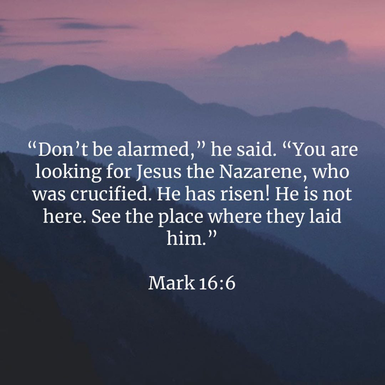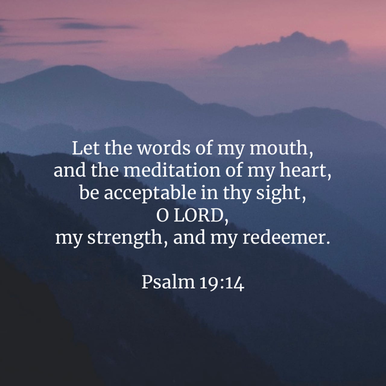|
Good morning! We're so happy you chose to join us today! When we meet in person, we take some time to share our joys and concerns. As you consider the past week, what are you thankful for? What brought you joy? What are you worried about? If you have anything you would like to share, you can include a comment on this post. When you are ready, you can use this prayer to get started. God, who is more than we can ever comprehend, help us to seek you, and you alone. Help us to stand before all that we could do and seek what you would do, and do that. Lift from us our need to achieve all that we can be and instead, surrender to what you can be in us. Give us ways to refrain from the busyness that will put us on edge and off center, give us today your peace. Amen. This week's lesson is on Deuteronomy 24:10-21. For Israel, part of being God’s covenant people was the just and proper treatment of poor and otherwise marginalized individuals. Previously, Moses had reminded the Israelites that the poor people would always be part of the population. As a result, Moses commanded an openhanded policy toward these individuals, requiring generous giving without resentment. Moses described a situation in which a neighbor- a fellow Israelite - needed a loan. The law forbids Israelites from charging interest on loans made to fellow Israelites. However, lenders were allowed to receive collateral or a pledge, as a security for a loan. There were restrictions. You could not take a person’s method of livelihood or a a widow’s clothing. To maintain the borrower’s dignity the lender was nor permitted to enter the borrower’s house but had to stay outside allowing the borrowers to bring the pledge out. The law added extra clarification to poor individuals. Lenders were limited on what could be done with a pledge of a borrower’s cloak. If that’s all a poor individual could provide as a pledge, then the lender was prohibited from keeping overnight, the clothing had to be returned by sunset. This protected the borrower’s health. Lenders were to be compassionate in their lending because God is compassionate. The lender’s act resulted in two outcomes. First, the borrower’s would thank the lender. One can picture the borrower, preparing for a good night’s sleep, offering a prayer of thanksgiving to God for the lender’s kindness. Second, the lender’s gesture would be judged by the Lord and deemed as a righteous act. God desires his people to live in this manner because his own nature is one of righteous and justice. The concern for justice among the poor and needy extended to hired hands. Israelites were not permitted to be sold as slaves but could become indentured servants. Such individuals had the expectation of eventually receiving freedom. Workers were paid for their labors at the end of an agreed time of work. However, the hired worker who was poor was to receive their agreed upon wages at the end of each day, before sunset. This worker, perhaps living a hand to mouth existence, depended on such timely pay to provide for daily necessities. If workers were treated unjustly, it would be within their power to cry out to the Lord for help and justice. As failing to return a poor person’s pledge at the end of the day would be considered unrighteousness withholding pay from a poor person at the end of the day would be considered a sin. Parents are not to be put to death for their children, nor children put to death for their parents; each will die for their own sin. Do not deprive the foreigner or the fatherless of justice, or take the cloak of the widow as a pledge. God desires justice for needy individuals and his people are to desire the same. Moses reminded the second generation of Israelites of their history as slaves in the land of Egypt. That along with God’s redemption act served as the foundation for Israel’s identity. The corporate memory of that bondage and their following redemption was to motivate the Israelites to compassionate treatment of the marginalized. That would happen as the Israelites remembered their suffering and marginalization as slaves in Egypt. To treat others as they had been treated by God for Israel. They were to remember that God redeemed them from their situation and provided justice where injustice reigned. In addition to justice in lending practices, justice to the vulnerable was also seen at harvest time. They were to leave some of the grain, grapes and olive crops for the underprivileged to gather afterwards. This is seen enacted in the narrative of Ruth, a foreign widow who gleaned the leftover grain from the fields of her Hebrew relative, Boaz. God’s blessings is contingent on meeting the needs of others The Lord will bless those who honor his laws and treat marginalized with respect and compassion. Conclusion The physical needs of others confront us daily. Applying God’s principles for an ancient culture, where 98% of people lived on farms, to our modern culture, where 2% do, is a challenge. But a common ground starting point is that people of God in all times should live in such a way as to respect the dignity of those in need. Granted, it may take some challenging conversations and creative thinking on our part to apply these principles in specific and helpful ways. This lesson Scripture text provides principles of justice that each and every follower of God should model and help enact. Our Heavenly Father has made it clear that his heart and his compassion are with those in need. Are ours? Prayer Father, we pray that you help us always to see our neighbors as you see them, especially those who are often ignored or treated with contempt. Help us to treat them justly, with mercy that you have shown us. In Jesus name. Amen Questions What aid does your congregation offer the poor, which would be missed if that support vanished? What effects do you think the pandemic had on the people who was just getting by paycheck to paycheck? What characteristics of offering your “leftovers” to others make it a respectful act? Benediction Our benediction this week is from The Passion Translation. Next week's lesson will be on 2 Samuel 12:1-9, 13-15.
0 Comments
Leave a Reply. |
AuthorWe are a small, rural Presbyterian church in southwestern Pennsylvania. Archives
July 2024
Categories
All
|



 RSS Feed
RSS Feed